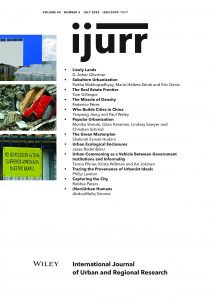While there is general acceptance that urban governance in China is entrepreneurial in nature, little has been written about the precise ways in which Chinese cities implement entrepreneurial policies. In this article we argue that the primary agents of urban entrepreneurialism in China are urban investment and development companies (UIDCs), known in Chinese as chengtou for short. We start by defining UIDCs as a category of state‐owned enterprise, but one that is wholly owned by local (often city) governments. We note that in the literature UIDCs are generally recognized for their involvement in raising funds for projects and piling up hidden debts, but their multiple roles in urban development tend to be neglected. We introduce here four UIDCs that have been largely responsible for the transformation of Shanghai into a modern city spearheading Chinese state entrepreneurialism, and in doing so we delineate the full range of the activities of these urban business empires. We argue in particular that they represent a corporate involvement by the state in urban development—the state presenting itself in the guise of a market player, a corporate entity able to raise funds and act as if it were a private company. UIDCs are the driving force behind China’s urban entrepreneurialism and are without a clear parallel elsewhere.
Details
Written by:
Yanpeng Jiang & Paul Waley
Digital Object Identifier (DOI)
10.1111/1468-2427.12918
About DOI

